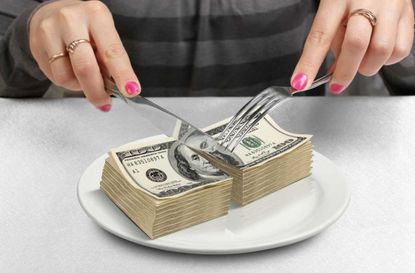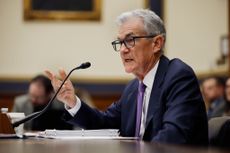Put Yourself on a Financial Diet Now for a Happier Retirement Later
Developing some healthy financial habits now can help set you up for a secure retirement. And it may even let you retire sooner than you thought possible.


If you’re like many retirees and soon-to-be retirees in the U.S., your top worry right now is that your nest egg won’t last as long as you do.
But what are you doing about it? And how is your financial professional helping you address your concerns?
Like most financial advisers, my wife and I spend a lot of time talking to prospective clients about income. We use our first get-to-know-you meeting mostly to ask questions and gather information about assets and possible income streams. In our second meeting, we review those numbers and explain the tools we can use to help make the most of their money. And in our third meeting, if they decide to go with us, we get down to the details — and get to work.

Sign up for Kiplinger’s Free E-Newsletters
Profit and prosper with the best of expert advice on investing, taxes, retirement, personal finance and more - straight to your e-mail.
Profit and prosper with the best of expert advice - straight to your e-mail.
But we realized, fairly recently, that we weren’t talking about the money going out nearly as much as the money coming in. And for many people, that can be a huge factor in the success or failure of their retirement plan. They’ve built up a lifestyle of consumption, and when they retire, they usually don’t plan to change things much. Indeed, many expect to travel more, renovate the kitchen, move to a warmer climate or take up a new hobby. And those things cost money.
In the past, research by Aon Consulting and Georgia State University suggested you’d need to replace 70% to 90% of your annual pre-retirement income with the money you’re bringing in from various sources in retirement. Based on 20 years of giving advice, I’d say 90% is the right figure for most people these days — at least until they reach their 70s and slow down a bit.
But there’s a way around that daunting post-paycheck reality: Spend less. Look at the other side of the spreadsheet and knock off or down a few of those numbers.
When we give people an expense sheet to fill out, those who actually do it are amazed at where their money is going. People go to Starbucks once or twice during their workday. Many go out to lunch every day — and stop for takeout on the way home.
We develop these habits when we’re working and cash flow is consistent. But that doesn’t mean we have to spend the money — or that we should.
Forget about running out of money in retirement — there are people who actually could retire earlier than planned if they simply would put themselves on a financial diet. So, let’s weigh a few options:
- Dump your debt. Most financial planners and money managers will tell you that if you can find an investment with a return that’s larger than what you’re paying in interest on your debt, you should do it. But it’s hard to find a situation like that right now — unless that debt is your mortgage, which also offers tax savings. Just about anything else — especially credit card debt — is going to be financed at a high rate. And the money you take out of your income to service that debt could hinder you from achieving your financial goals.
- Ditch your kids’ debts, too. We often find that parents are still paying student loans for children who are long out of the house and sometimes doing better financially than they are. Frequently, the kids don’t even realize their parents are still shouldering that burden and would be fine with taking over the responsibility for the payments themselves.
- Don’t be lazy. Make a list before you go to the grocery store. Cook more instead of eating out. Make your own coffee instead of spending $1.50 or more for a cup at McDonald’s, Dunkin’ Donuts or Starbucks. Get a library card and borrow books instead of buying them online.
- Cut down on business expenses. If you own your own business, you have some control over the costs. It’s amazing what you can save by shopping around for a better price on office supplies, furniture, cleaning services or auto insurance.
- Trade today’s luxuries for tomorrow’s contentment. Do you really have to lease a new car every three years, and does it have to be a luxury brand? Or could you go out and buy a used car with 30,000 miles on it and run it for the next decade?
The bottom line is you can make some cuts now, on your own terms, or make them later because you have to.
I can tell you this from experience, though: The folks who are really happy in retirement are the ones who have figured out what it costs to live comfortably, and they know they have those expenses covered.
Investment advisory services offered only by duly registered individuals through AE Wealth Management LLC (AEWM). AEWM and Your Own Retirement are not affiliated companies. Investing involves risk, including the potential loss of principal. Any references to protection benefits, safety, or guaranteed income generally refer to fixed insurance products, never securities or investment products. Insurance and annuity product guarantees are backed by the financial strength and claims-paying ability of the issuing insurance company.

David Hickey is a managing director at Your Own Retirement in Cranberry Township, Pennsylvania. He has over 30 years of experience in the insurance, finance and investment industry. Hickey has earned the Certified Property and Casualty Underwriting designation from the American Institute. He has a Bachelor of Arts degree in English from the University of Pittsburgh. Hickey has contributed his time to coaching baseball and ice hockey; part and parcel of raising five children with his wife of 31 years, Susan.
-
 Stock Market Today: Stocks Stabilize After Powell's Rate-Cut Warning
Stock Market Today: Stocks Stabilize After Powell's Rate-Cut WarningThe main indexes temporarily tumbled after Fed Chair Powell said interest rates could stay higher for longer.
By Karee Venema Published
-
 How Did O.J. Simpson Avoid Paying the Brown and Goldman Families?
How Did O.J. Simpson Avoid Paying the Brown and Goldman Families?And now that he’s died, will the families of Nicole Brown Simpson and Ron Goldman be able to collect on the 1997 civil judgment?
By John M. Goralka Published
-
 How Did O.J. Simpson Avoid Paying the Brown and Goldman Families?
How Did O.J. Simpson Avoid Paying the Brown and Goldman Families?And now that he’s died, will the families of Nicole Brown Simpson and Ron Goldman be able to collect on the 1997 civil judgment?
By John M. Goralka Published
-
 What Not to Do if an Employee or Loved One Is Kidnapped
What Not to Do if an Employee or Loved One Is KidnappedBusinesses need to have a crisis plan in place so that everyone knows what to do and how to do it. Sometimes, calling the authorities isn’t recommended.
By H. Dennis Beaver, Esq. Published
-
 Why You Shouldn’t Let High Interest Rates Seduce You
Why You Shouldn’t Let High Interest Rates Seduce YouWhile increased interest rates are improving the returns on high-yield savings accounts, that may not be an effective place to park your money for the long term.
By Kelly LaVigne, J.D. Published
-
 Need to Build an Emergency Fund? Seven Steps to Get There
Need to Build an Emergency Fund? Seven Steps to Get ThereHaving a safety net can mean peace of mind on top of being able to maintain your lifestyle if a financial emergency strikes.
By Justin Stivers, Esq. Published
-
 Which Type of Life Insurance Is Right for You?
Which Type of Life Insurance Is Right for You?Life insurance isn’t a one-size-fits-all option. Here are the differences between term life, whole life and indexed universal life insurance.
By Jay Dorso Published
-
 What Happens Financially When You Work One More Year?
What Happens Financially When You Work One More Year?The impact of saving more, spending less later and benefiting from an extra year or more of compounding can be truly staggering.
By Andrew Rosen, CFP®, CEP Published
-
 Three Ways to Give to Your Kids Tax-Free While You’re Still Alive
Three Ways to Give to Your Kids Tax-Free While You’re Still AliveParents can see the positive impact of their giving through tax arbitrage, giving cash (within limits) or directly paying for school or medical expenses.
By Evan T. Beach, CFP®, AWMA® Published
-
 Your Kids' Tax Brackets Could Lead to Unequal Inheritances
Your Kids' Tax Brackets Could Lead to Unequal InheritancesSometimes, divvying things up equally means one child might end up with less because of tax implications. Here’s how to avoid that.
By Antwone Harris, MBA, CFP® Published